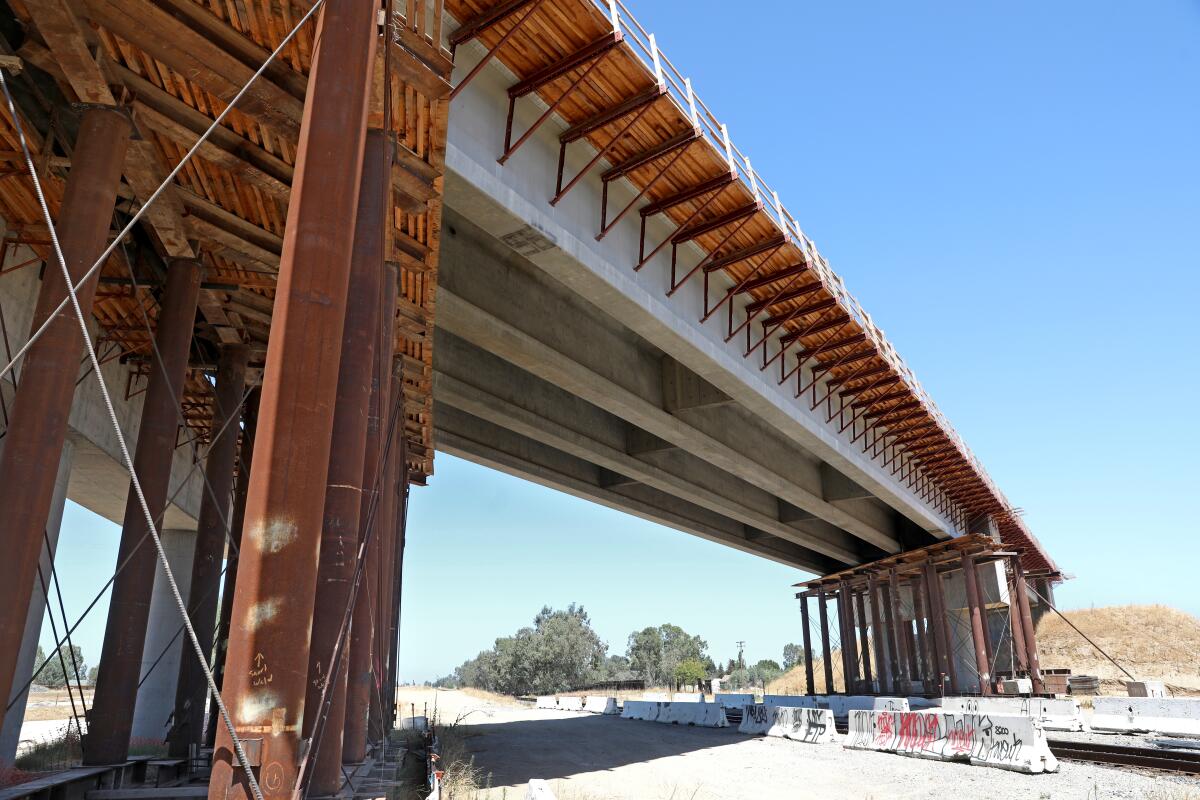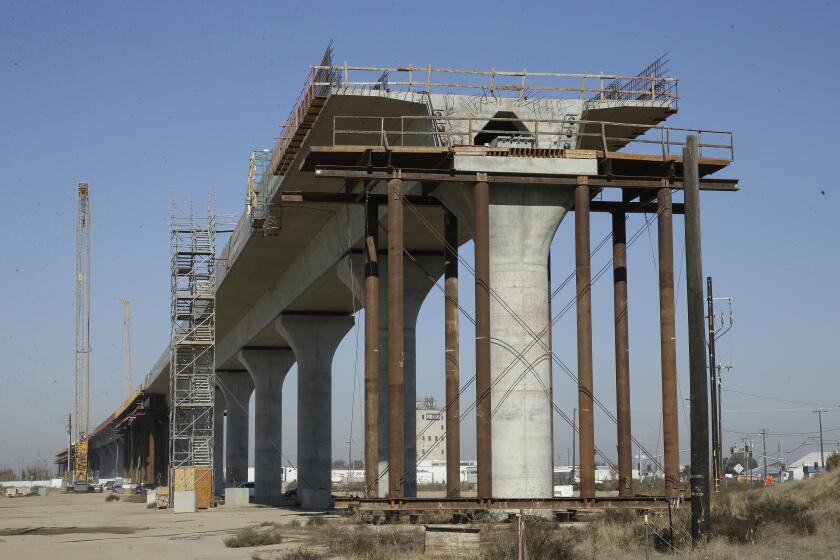Newsom and California lawmakers hit an impasse on financing bullet train

- Share via
A battle to secure an additional $4.2 billion for the California bullet train has hit an impasse, with Gov. Gavin Newsom and legislative leaders failing to reach a compromise Friday.
Unless the two sides resume talks soon, any additional money for the bullet train will have to be negotiated in 2022, forcing the rail project to dip further into the roughly $2-billion pot it has in hand.
The California High-Speed Rail Authority was seeking the appropriation of all the remaining money from a 2008 bond act to continue building a partial operating system in the San Joaquin Valley. At the same time, a large coalition in the Assembly wants some of the money diverted to high-speed rail segments in Southern California and the Bay Area.
The negotiations began last spring; since then, the lines have hardened, as Newsom threw his support fully behind rail authority chief Brian Kelly.
“There is a decision to take it up in January,” Kelly said in a telephone interview Friday night. “Ultimately, we need the appropriation, and if we can’t get the appropriation this year, we will come back next year.”
The diversion of money to coastal segments of the high-speed rail system would involve delaying purchases of trains and installation of a costly high-voltage electrical system over the route from Bakersfield to Merced. It would mean using either slower, battery-operated trains over some period of time or diesel locomotives in the Central Valley.
Newsom has been adamant that the era of diesel trains must end.
The Legislature and Newsom were far apart when the talks broke down.
The negotiations were led by Assembly Transportation Chair Laura Friedman (D-Glendale), who has been pressing the bullet train project to improve its performance after a history of cost increases and schedule delays. Friedman has contended for months that there was no reason to give the rail authority the full $4.2-billion appropriation when it wasn’t needed in immediate years.
At a critical time, the California High-Speed Rail Authority is unsure about funding from the Legislature and President Biden’s infrastructure plan.
The rail project has money to keep going until next year, unless it gets hit with massive change orders from its contractors or other problems.
On paper, the project to build 171 miles of track from Bakersfield to Merced can be completed for $22.8 billion, just about what the rail authority has available through 2030. But if costs continue to rise, as has happened for the past half dozen years, it could require more than the $4.2-billion appropriation.
The legislative dispute could affect the willingness of Congress to provide federal funding for the bullet train out of a $3.5-trillion budget resolution. The project has so far failed to secure dedicated funding in a $1-trillion infrastructure package, frustrating advocates of high-speed rail.
More to Read
Sign up for Essential California
The most important California stories and recommendations in your inbox every morning.
You may occasionally receive promotional content from the Los Angeles Times.












